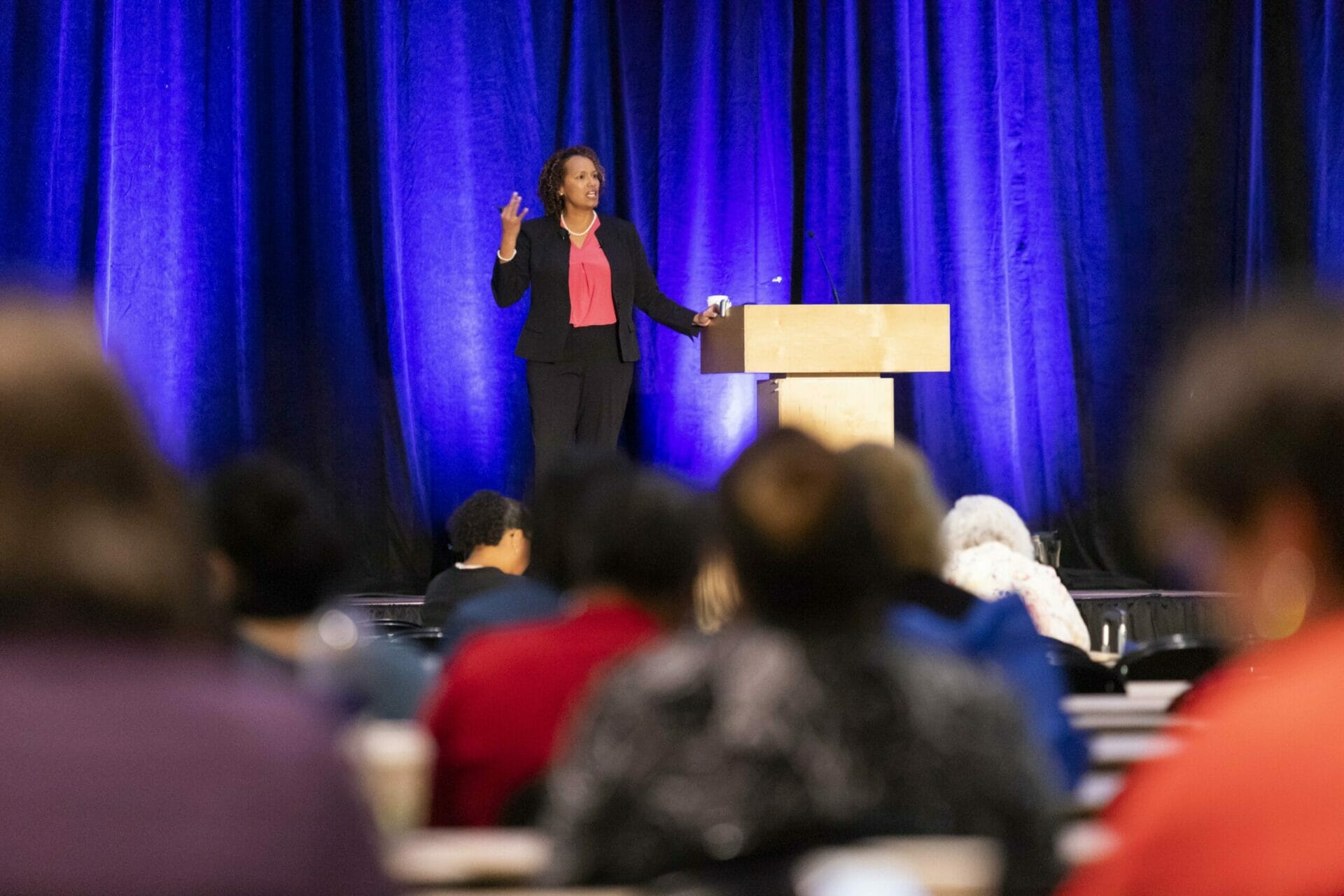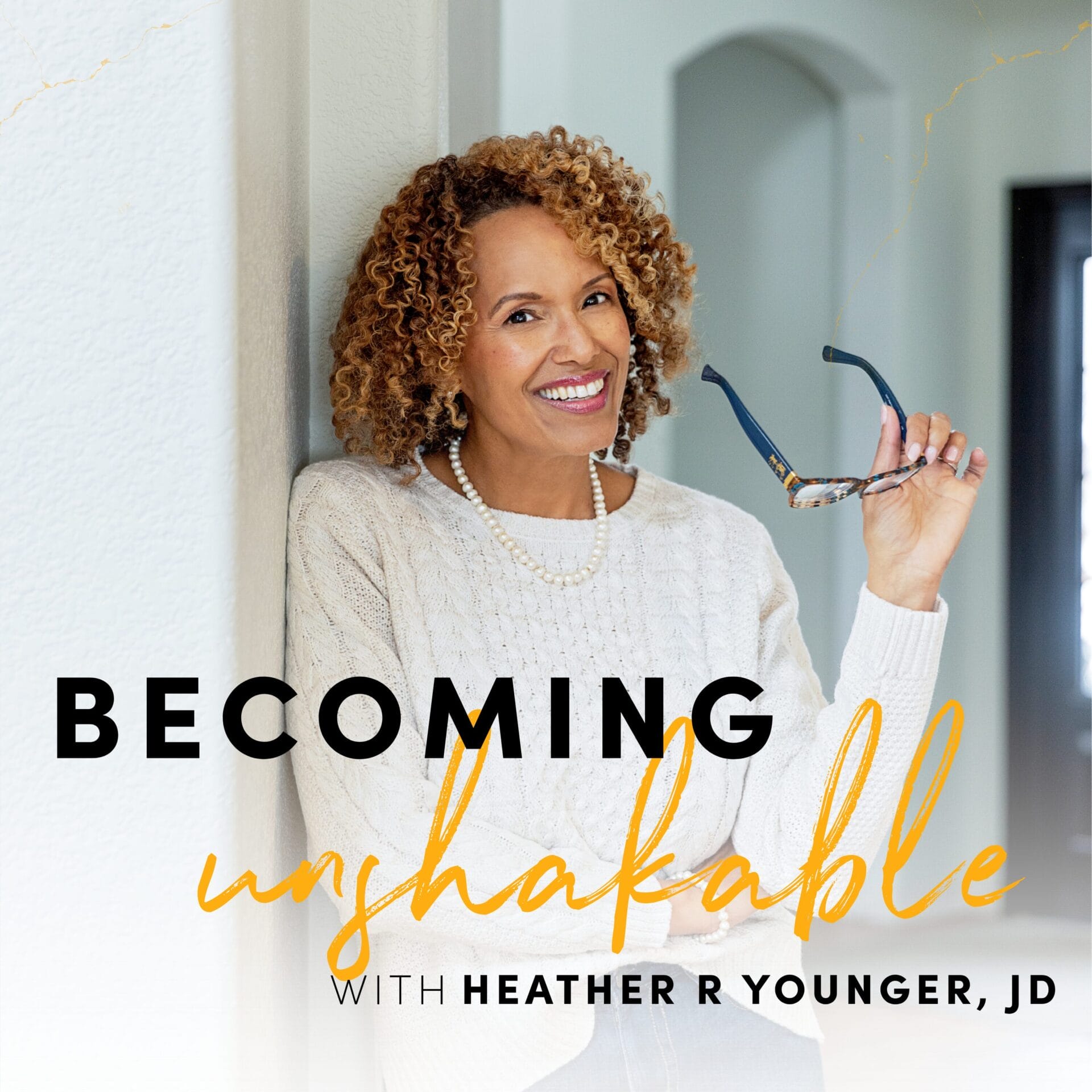After a lifetime of trying to minimize my difference—the difference between me and my white mother, the difference between me and my coworkers, the difference between me and other thought leaders—I am now being pulled out of the shadows and into the spotlight to share my story. These past few years, I’ve felt compelled to share my journey of overcoming adversity, being an outsider in the workplace, and existing as an outcast in a biracial household. My Jewish grandmother was dissatisfied with whom my mother had chosen to start a family with (i.e., someone Black and Christian), which complicated our relationship since I was a symbolic embodiment of that sin, so to speak. As an adult, I now see the professional skills this experience of exclusion instilled in me, and I feel how this story resonates with the audiences I share it with.
It’s a strange and uncomfortable process, simply because I’ve been conditioned to find safety in hiding my story. But when the call to action is so loud and so resolute, it’s important to follow that call for the greater good. As I’ve discovered my leadership style over the course of my career, I’ve learned that a caring leader is someone who is comfortable being vulnerable with those they lead, thus fulfilling a higher—albeit more difficult—purpose.
About eight years ago, before my current role as an employee advocate, I became good friends with an Orthodox Jewish coworker whom I had hired as a sales representative. He wore a yarmulke, attended an Orthodox synagogue, adhered to kosher eating guidelines—and he did all of this openly and with pride. He knew a little bit about my Jewish background, but not the entire picture. At that point, I was still in the process of becoming comfortable bringing my full self to work, complicated family history and all. However, he was generally aware of my Jewish heritage, and it allowed us to forge a strong connection.
A few years down the road, he invited me to his son’s upcoming bar mitzvah. Now here’s the truth: at that point in my life, I had never attended or even been invited to a bar mitzvah, despite my half-Jewish upbringing. After all, I was never welcome at those kinds of events as the “black sheep” of the family. Admittedly, I was a bit surprised, a bit nervous, and of course very honored by his invitation. He had no idea how special that small gesture was to me, yet his act of grace and courtesy made a big impact on my relationship with my Jewish identity.
I attended the ceremony, perhaps with a little trepidation. In the past, I’ve written about how my Jewish grandmother would keep me hidden from her community because she was ashamed to have a biracial granddaughter, and since then, I’ve been anxious to reenter Jewish spaces. To my suprise, everyone at this Orthodox synagogue was extremely welcoming, accepting, and warm. I felt as if I was in a judgment-free zone, where no one even cared that I looked different than the rest of the crowd. At the end of the day, I finally felt accepted and included in a community I had always been a part of, but in which I had never felt truly welcomed.
Recently, I shared this particular story with a corporate client who was trying to grasp the meaning of inclusion. The key takeaways helped elucidate what inclusion means to me: don’t lead with fear if someone on your team is different from you. Instead, lead with curiosity and courage, and stand in solidarity with them as you honor (not erase) that very difference. Be proud of your alignment with other communities, and welcome others into that process who you believe might benefit from that proximity to diversity. This is exactly what my Orthodox Jewish friend did for me, and I now pay that grace forward by telling our story.
My life and career is full of these kinds of stories, and I’m now witnessing the power they hold if wielded responsibly. As I become more comfortable opening up as a caring leader, I can attest to the profound potency that vulnerability carries as a teaching tool. I encourage you to take stock of your own stories, and consider what lessons you can pass along if you just take center stage for a moment.




